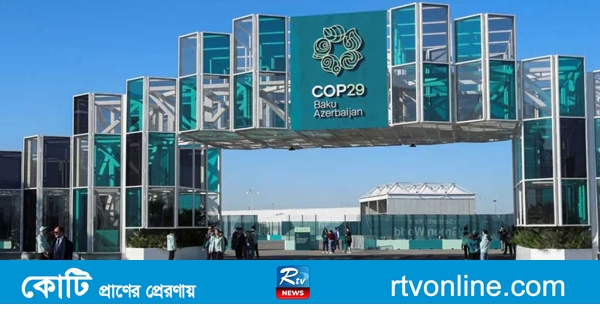The United Nations-organized COP-29 (Conference of the Parties) climate summit is set to begin in Azerbaijan, focusing on climate change and global strategies for tackling its impacts.
The summit will take place in the country’s capital, Baku, starting Monday, November 11, and will continue until November 22. More than 70,000 delegates are expected to attend, including a delegation from Bangladesh. The Chief Advisor of Bangladesh’s interim government, Dr. Muhammad Yunus, will also participate, departing from Dhaka today.
According to Chief Advisor’s Press Secretary, Shafiqul Alam, Dr. Yunus will be on an official visit to Azerbaijan until November 14, where he will deliver speeches at various forums of the climate summit and hold meetings with other key participants.
Dr. Yunus may advocate for compensation at COP-29 for the adverse impacts Bangladesh faces due to climate change. Bangladesh is expected to bring forward issues such as the “Loss and Damage Fund,” funding under the Paris Agreement, and the plight of climate refugees at this global platform.
The summit will highlight the climate challenges Bangladesh confronts, including recent flood damages in the eastern districts. Bangladesh may seek support from developed countries for green technology to bolster its climate resilience.
Ahead of the global climate summit, the coalition of Least Developed Countries (LDCs) stated that financial aid provided in the form of loans has placed a burden on their economies. LDCs require $1 trillion by 2030 to combat climate change effectively. Without this support, suffering in LDCs is likely to increase.
Ahmad Shamim Al Razi, former Additional Secretary of the Ministry of Environment, Forest, and Climate Change, pointed out that urban centers in Bangladesh, including Dhaka, face severe climate threats such as heatwaves, air pollution, and waterlogging. Effective participation in COP-29 could create opportunities for sustainable urban development and climate-resilient infrastructure for Bangladesh.
Professor Dr. Ahmad Kamruzzaman Majumdar, Dean of the Faculty of Science at Stamford University, noted that COP-29 presents Bangladesh with an essential platform to move towards a green and sustainable future by reducing dependence on fossil fuels. Bangladesh hopes to secure cooperation from developed countries in transitioning away from fossil fuels and increasing the use of renewable energy. Decisions made at the summit will directly impact the livelihoods of the country’s population. With climate finance and technology transfer, Bangladesh could advance toward a green economy, gain vital support for renewable energy projects, and draw global attention to the pursuit of a fair and just energy transition.

